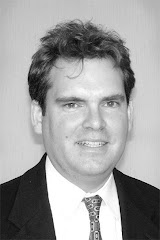 | DOUGLAS BURNS Daily Times Herald Columnist |
But they apparently don’t pay much attention to the most significant of American surveys: The Census.
The 2000 Census figures show dramatic growth in the number of Hispanics in Iowa. A wise candidate would take note of this and campaign aggressively in Iowa’s Hispanic enclaves.
It could be a winning strategy, a way for a candidate to separate from the field of nine (and possibly counting).
Only about 61,000 Iowans participated in Iowa’s Democratic caucuses in the year 2000, and that number doubled in 2004.
With a similar turnout in 2008, it’s conceivable that a candidate who successfully courts, say, 1,500 Hispanic caucus-goers in Sioux City could pull off a win.
A couple of caucuses in Denison and a few in Storm Lake, and presto, you’ve just won the night and vaulted into front-runner status for the Democratic Party’s nomination.
“That would be one way to get a significant portion of the early vote,” said Arthur Miller, a professor of political science at the University of Iowa.
Iowa Secretary of State Chet Culver said it makes sense for candidates to pursue Hispanic voters.
“I actually think the one who wants to win will,” said Culver, a Democrat. “It has to be a part of their statewide and national strategy.”
So far, though, Miller says he hasn’t seen much from candidates in the way of appeal to Hispanics.
Clearly, the “Hispanic community” isn’t a monolith. Some Hispanics are Republicans, some are Democrats — and there are cultural differences between Hispanics from Mexico and those from Central America and South America.
“For all the white Americans all the Hispanics are Mexican,” says Roxana Boteo, a Guatemalan immigrant and interpreter in the South Sioux City schools. “But we’re not all Mexican. It’s not that I don’t like Mexicans. It’s just Mexico, Mexico, Mexico.”
Such cookie-cutter stereotyping can be exasperating, she says.
But Iowa Hispanics, whether they hail from Guatemala or California or Mexico City, have shared interests on issues like immigration reform and worker rights.
These are literally life and death issues for the Hispanic community, and Boteo says candidates who favorably address them would be surprised by the reaction in Latino areas.
A little attention would go a long ways, she says, noting that there are 9,300 Hispanics living in the Sioux City area alone according to the Census.
“They consider us for cheap labor,” Boteo says. “It’s very, very sad. We’re somebody to work, but we are not somebody to say anything.”
But like the Irish immigrants generations ago Hispanics in Iowa may have reached critical mass.
And just as Irish eyes spied opportunities and the ladder up from working-class tenement housing through politics, Hispanics could use the caucuses to foist their issues to the fore.
“I think they could actually use the caucuses to gain some additional highlighting and emphasis for their causes,” Miller says.
Support of ethanol is a litmus test here in the Hawkeye State. Why shouldn’t a candidate’s stance on immigration reform be one, too?
The numbers are there for Hispanics to make a strong statement.
In 2000 there were 81,500 Hispanics in Iowa. The Census reported that Polk County had 17,000 Hispanics; Pottawattamie, 3,000; Crawford County, 1,500; and Buena Vista County, 2,500.
“Politically, not only in Iowa, but nationally, Hispanics are going to play a large role in our political process,” Culver says.
Like the presidential race itself the emergence of Hispanic political clout, true electoral muscle, could start right here in Iowa.
“A block of 2,000 votes could be key,” Culver says.
Now, in the end, the question in this “English As The Official Language” state becomes: will cultural barriers prevent Hispanics from caucusing.
Even born-on-the-farm Iowa politicos struggle with the quirky caucuses at times.
Could relative newcomers adapt?
“There is such a curve,” Culver said. “It is hard to get anyone interested in the caucuses. The person who is going to win the caucuses on the Democratic side is the one who can get anyone to show up.”
Miller thinks a Democratic candidate with the right message could mobilize Hispanic voters.
And both Miller and Boteo say that the close-knit Hispanic communities in Iowa could thrive in a caucus process, that it may just be tailor-made for the Latino culture.
There literally could be all-Hispanic caucus sites in some places in Iowa.
“If it was localized it probably wouldn’t be a problem for them as long as they went in groups,” Miller says.
The danger with the Hispanic political strategy — and it could prove a fatal one — is that it might result in a backlash from white organized labor if its members aren’t sufficiently massaged after any Spanish pronouncements from candidates.
But so many Hispanics come to the United States for jobs native Iowans and union members don’t want anyway.
The incidents of discrimination and abuse visited upon Iowa’s Hispanics in those jobs — and outside of the workplace for that matter — have been legion.
But the numbers just might be in the Hispanics’ favor on caucus night 2008.
And to the kingmakers go the political spoils.





No comments:
Post a Comment